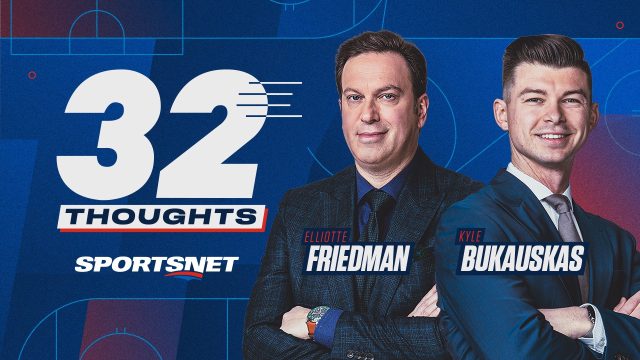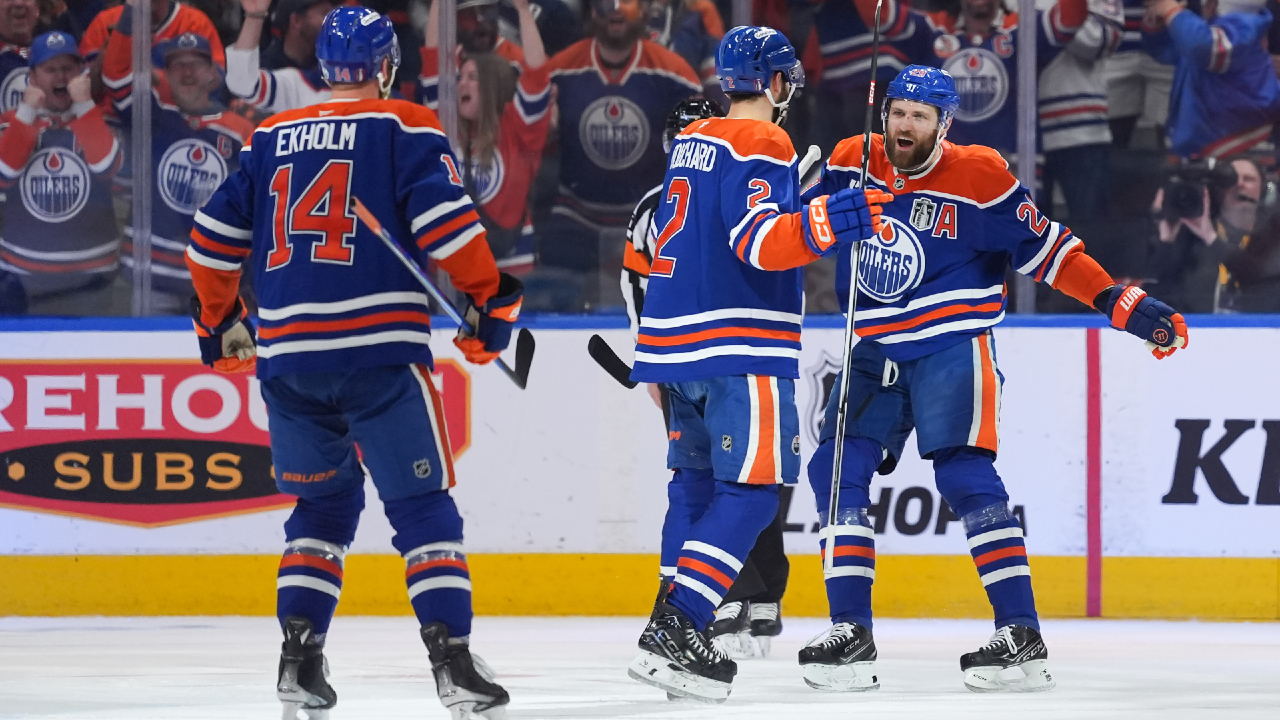NEW YORK — There was a time when the only way the Edmonton Oilers could lure a free agent of any import was to overpay, over-term, and frankly, overestimate the impact they could have on a losing lineup in a lost dressing room.
The Eric Belangers and Sheldon Sourays would buy in, then eventually get bought out, in an endless cycle of futility that would come to be known as the Decade of Darkness in Edmonton.
The rink, the weather, their financial mite… It was old, cold and not very bold.
Then The Athletic came out with that darned agents poll that had the Oilers neck and neck with the Winnipeg Jets as the place most players least wanted to play, annually confirming the worst fears of Oilers fans.
Today, the best player in the world just signed a flat deal to play two more seasons in Edmonton. Leon Draisaitl is about two seasons away from being underpaid through the remainder of an eight-year contract, and Mattias Ekholm took perhaps $2 million less than the market might have borne to stay in a city that his family has fallen in love with.
Somehow, the Edmonton Oilers flipped the script for a city and team that was an NHL afterthought.
“I’m 35,” begins Ekholm, an Olympic-level defenceman who has chosen Edmonton as a place to finish a career — and quite possibly to live long-term when his hockey days are over. “I understand that I can probably go make six million bucks somewhere, to try to get some D-corps to find their feet and be good in five years, eight years, whatever. But then I’ll be out the door.
“So, what do I want with my career? I want to win — that’s the bottom line. And where do I have the best possibility of doing that?”
It’s easy to say that all the Oilers had to do to turn their culture around was acquire Connor McDavid.
And Ekholm will tell you, any resurgence in popularity among NHL players “starts with the competitiveness of the team.”
But a team can’t control where it is going to draft, or which player will be waiting for you when it’s your turn on the clock.
Sometimes it’s Nail Yakupov at No. 1, sometimes it’s Draisaitl at No. 3. (Thanks, Buffalo.)
What you can control, however, is the construction of a world-class arena and facilities — including the attached practice rink (see: Vancouver) — that are superior to 95 per cent of NHL opponents, and an owner that treats his players no worse, and often better, than the best owner in the sport.
You can deftly assemble a dressing room with a functioning culture, proper leadership and demonstrable winning pedigree — perhaps the biggest weapon for general manager Stan Bowman when acquiring players, considering Edmonton’s waning draft capital and a near-empty prospects cupboard after years of Stanley Cup contention.
Bowman can’t change the weather, so something had to give for Edmonton to become a place where good players in their prime years wished to come.
 32 Thoughts: The Podcast
32 Thoughts: The Podcast
Hockey fans already know the name, but this is not the blog. From Sportsnet, 32 Thoughts: The Podcast with NHL Insider Elliotte Friedman and Kyle Bukauskas is a weekly deep dive into the biggest news and interviews from the hockey world.
“Players have a lot of trade protection and for different reasons. Guys don’t want to go to certain cities,” said 35-year-old Adam Henrique. “Whether it’s the cold, the team, the losing… It’s a tough combination.”
Henrique arrived at the 2024 trade deadline with an AAV of $5.85 million. That summer, he signed a two-year deal worth $3 million per season.
“You can play this game for different reasons,” says Henrique, scheduled to play his 1,000th NHL game Tuesday night in Ottawa. “Your motivation can certainly be money — we get a short window to play this game and try to make the most money possible for the rest of your life, for you and your family. Guys are deserving of that.
“But there’s that big middle gap in my career (in Anaheim) where I made pretty good money, but it becomes a job. You know going in that we’re probably not winning the Cup or making the playoffs, so you’ve got to find motivation. At times, for me, that motivation became, ‘A good team that’s going to have a chance to win, what are they going to want in me as a player?’ I had to perform to come somewhere else, and that happened to be here.”
Don’t cry a tear for Henrique, who has career earnings of around $58 million. But he’s been to three Cup Finals and lost them all, a 1,000-game player without a Stanley Cup ring.
“At the end of the day, if I made two or three or four million bucks more than where I’m at, is that going to make a huge difference in the rest of my life? Probably not,” he admitted. “When I was little, doing my projects in grade school, it wasn’t like, ‘I just want to make the most money ever.’
“It was ‘I want to win a Stanley Cup.’”
Draisaitl was underpaid with an AAV of $8.5 million for the lion’s share of his last contract. Now he is in Year 1 of an eight-year pact that pays him $14 million per season — while a lesser player like Kirill Kaprizov has already surpassed Draisaitl with his $17 million deal.
Which will make sweeter memories for Draisaitl? That extra few million, or a Stanley Cup ring?
“Certainly the Stanley Cup, no doubt about it,” he said. “At the end of the day, we’re all going to be all right either way, with what we have. For us, it’s all about trying to win the Stanley Cup.
“Every player makes their own decisions,” he said. “We want to win. That’s no secret.”
Perhaps Edmonton has quietly become a Detroit or St. Louis — cities that are not usually well thought of by short-term visitors in downtown hotels, but beloved by those who get to know the city and have time to enjoy the things that make them unique.
“As a guy that knew basically nothing about Edmonton coming here, it surprised me big time with how quality of life,” said Ekholm, who was dealt to the Oilers after an entire career spent in Nashville. “In Canada, they’ve got the indoor rec centres. You don’t just have to go out and just dress in three jackets. There is different stuff to do, and people don’t know that until they come here.
“I understand that you’ve got to just withstand the cold in January, February, whatever. A couple of cold weeks. But then in the summers, you actually appreciate them, because you don’t get (warm weather) all the time.”
Schools, programs, an outdoorsy lifestyle…
Those things may mean little to younger players in their restricted contract years, but as they get older and greet free agency, often that comes with partners and children.
“If I left money on the table, that’s not the most important thing right now,” said Ekholm. “I’ve made my money. I’d rather be happy in a place and make maybe a little less money than miserable somewhere and the bank account is growing.
“If I can be somewhere I can win, and my family is doing good, why change?”

